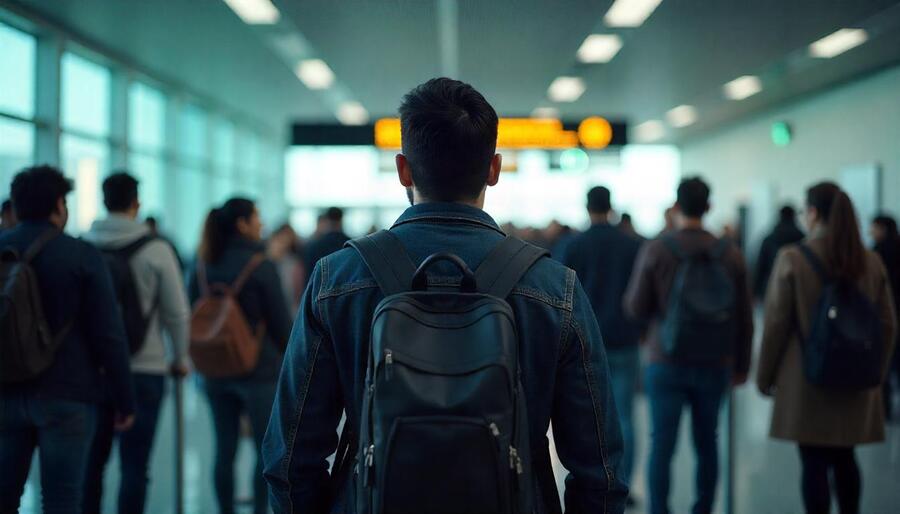Monday, June 2, 2025
Several leading UK airports—including Birmingham, Bristol, Edinburgh, Newcastle, and Teesside International—are spearheading a transformative shift in airport security by adopting advanced 3D CT scanners that allow travelers to carry up to 2 litres of liquids in their hand luggage. This groundbreaking technology not only streamlines the screening process but also eliminates the frustrating restrictions of the longstanding 100ml liquid rule, enhancing passenger convenience and reducing wait times. As these airports lead the way, they set a new benchmark for safer, faster, and more traveler-friendly security experiences across the UK.
UK Airports Revolutionize Security: Travelers Can Now Carry Up to 2 Litres of Liquids in Hand Luggage at Select Locations
Travelers flying through certain airports in the United Kingdom are experiencing a welcome upgrade in their security screening process. Thanks to the introduction of cutting-edge 3D computed tomography (CT) scanners, passengers at these airports can now carry liquids up to 2 litres in their hand luggage without the usual restrictions. However, this convenience isn’t yet universal across all UK airports, so knowing which locations have embraced the new technology is essential before packing your bags.
A Major Shift in Airport Security Rules
For decades, the strict limitation of 100 millilitres per container for liquids in carry-on bags has been a travel pain point. From toiletries to beverages, passengers have been required to meticulously separate small bottles and place them in clear plastic bags, often leading to frustrating delays and heightened stress at security checkpoints. The constant need to remove laptops and other electronics for separate screening added to this inconvenience.
Now, a significant transformation is taking shape. Several UK airports have begun installing advanced 3D CT scanners that allow security teams to screen hand luggage more thoroughly and efficiently, eliminating the need for many of the older rules and procedures.
Which UK Airports Have Adopted the New 3D Scanners?
The UK government is steadily introducing innovative screening systems that let passengers at designated airports keep up to 2 litres of liquids inside their hand luggage without removing them during security inspections. At present, these state-of-the-art scanners are operational at the following airports:
- Birmingham Airport
- Bristol Airport
- Edinburgh Airport
- Gatwick Airport
- Leeds Bradford Airport
- London City Airport
- Luton Airport
- Newcastle Airport
- Southend Airport
- Teesside International Airport
If you’re flying from any of these airports, you can enjoy a smoother security experience where you no longer have to separate liquids or electronics from your bags. However, if your journey starts at an airport still operating older screening systems, the traditional 100ml liquid limit remains in effect.
Keep Your Electronics and Liquids Packed
One of the most appreciated changes brought by these new scanners is the elimination of the requirement to remove laptops, tablets, and other electronic devices from carry-on bags. Since 2006, travelers have been accustomed to unpacking these items at security, slowing down the process and creating bottlenecks.
With the new 3D CT technology, passengers can leave their bags fully packed during screening, which not only speeds up security lines but also reduces the stress and hassle often associated with airport checks.
Why Are Major Airports Still Delayed?
The initial government plan aimed for nationwide adoption of the new scanners by June 2024. However, larger airports such as Heathrow, Manchester, and Stansted were unable to meet the target deadlines. Reports indicate that the new scanners detected more suspicious items than expected, leading to increased manual bag searches and screening delays.
Consequently, the 100ml liquid restriction was temporarily reinstated across all UK airports in June 2024 to maintain consistent security standards while troubleshooting these operational challenges.
A Department for Transport spokesperson confirmed that implementation schedules differ from airport to airport. Travelers are encouraged to verify the latest rules on their departing airport’s official website before their trip.
How Do These 3D Scanners Enhance Security?
Traditional X-ray machines generate two-dimensional images that can sometimes make it difficult for security personnel to discern potential threats hidden inside complex luggage arrangements. The new CT scanners, however, use 3D imaging to create highly detailed, rotatable views of bag contents.
This advancement allows security officers to examine every angle of your luggage, identifying suspicious items more accurately without invasive manual searches. The technology significantly improves both safety and efficiency, benefiting travelers and airport staff alike.
Practical Tips for Travelers During the Transition
As the UK continues to modernize its airport security infrastructure, passengers should remain vigilant and prepared. Here are some practical recommendations for anyone flying in or out of the UK:
- Research Your Departure Airport: Check the specific airport’s website to confirm if the 3D CT scanners are operational and what liquid restrictions currently apply.
- Stick to the 100ml Rule If Unsure: Unless your airport explicitly permits larger liquid volumes, pack toiletries and other liquids in containers no bigger than 100ml, stored in clear plastic bags.
- Be Prepared for Screening Delays: Given the transitional phase, allow extra time at the airport to accommodate any potential delays during security checks.
- Pack Smart: Organize your hand luggage for easy access and be ready to cooperate with security personnel to expedite the process.
What This Means for International and Domestic Travelers
For travelers transiting through the UK or starting their journeys there, the introduction of these scanners promises a much smoother airport experience—at least at airports that have adopted the technology. You’ll spend less time unpacking and repacking electronics and liquids, reducing stress and speeding up your passage through security.
However, for those on multi-leg trips involving airports without the new scanners, it’s safest to adhere to existing restrictions. This ensures compliance with security protocols across all stops and avoids potential delays or confiscations.
Looking Ahead: The Future of Airport Security in the UK
While the current rollout focuses on select airports, the UK government aims for a full nationwide upgrade over the coming years. This will standardize the security experience, allowing all passengers to benefit from the relaxed liquid restrictions and streamlined screening processes.
The ongoing investment in 3D CT scanning technology reflects a broader trend toward leveraging advanced imaging and artificial intelligence to enhance safety while minimizing traveler inconvenience. As airports continue adopting these innovations, expect security procedures to become faster, smarter, and more traveler-friendly.
Conclusion: Stay Updated and Travel Smart
The relaxation of the 100ml liquid limit at several UK airports marks a significant milestone in modernizing air travel security. This change is particularly beneficial for frequent flyers, families, and international travelers eager for a less cumbersome airport experience.
Nevertheless, since not all airports have completed the transition, awareness and preparation remain key. Always check your departure airport’s latest security policies, pack accordingly, and allot sufficient time for airport procedures. Doing so will help you navigate this evolving landscape smoothly, ensuring your journey starts on the right foot.
Leading UK airports like Birmingham, Bristol, Edinburgh, Newcastle, and Teesside International are transforming travel by adopting advanced 3D scanners that allow up to 2 litres of liquids in hand luggage, making security faster and more convenient. This innovation reduces delays and eases long-standing liquid restrictions for passengers.
With technology steadily transforming airport security, travelers can look forward to a future where convenience and safety go hand in hand—making every trip a little less stressful and a lot more enjoyable.



